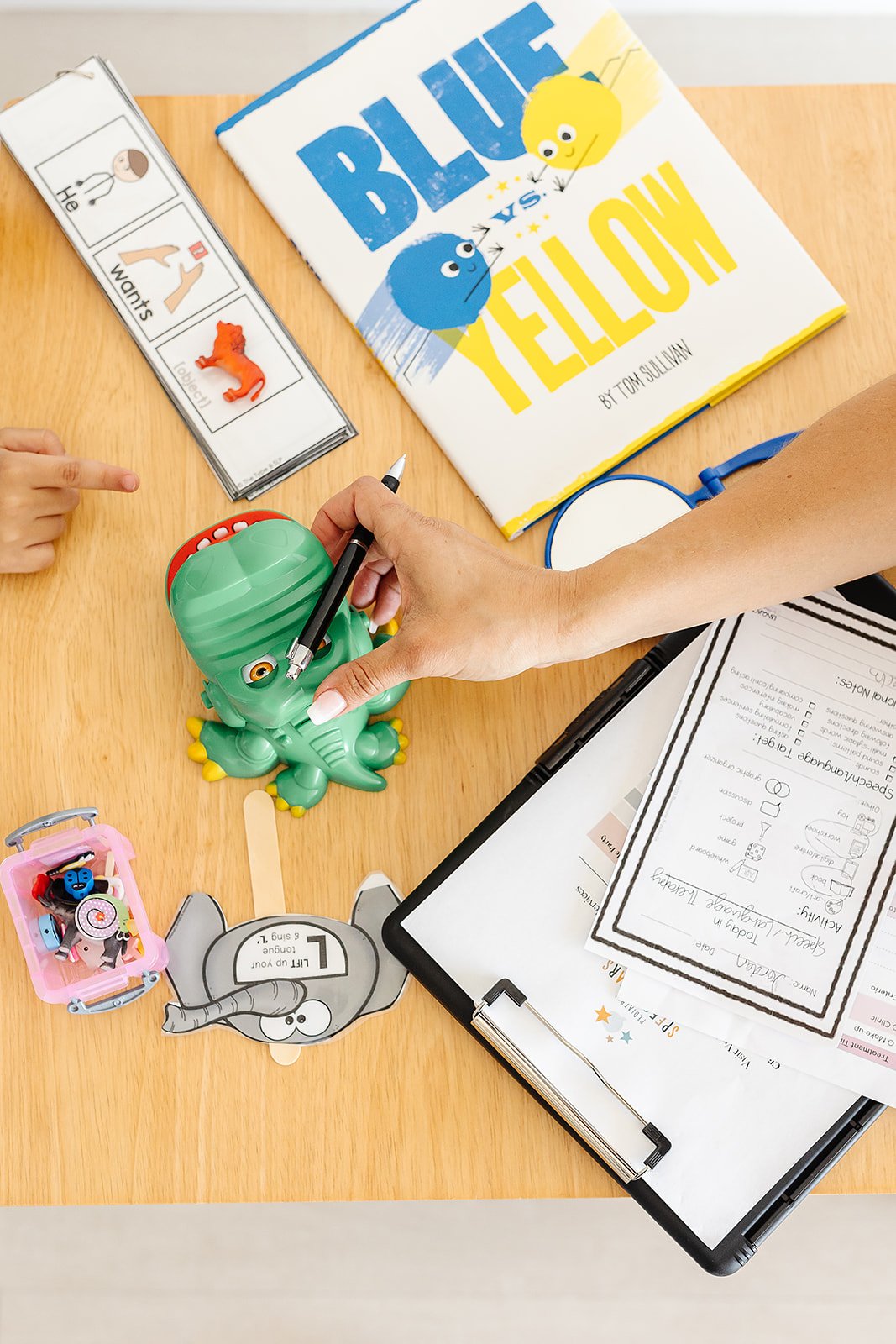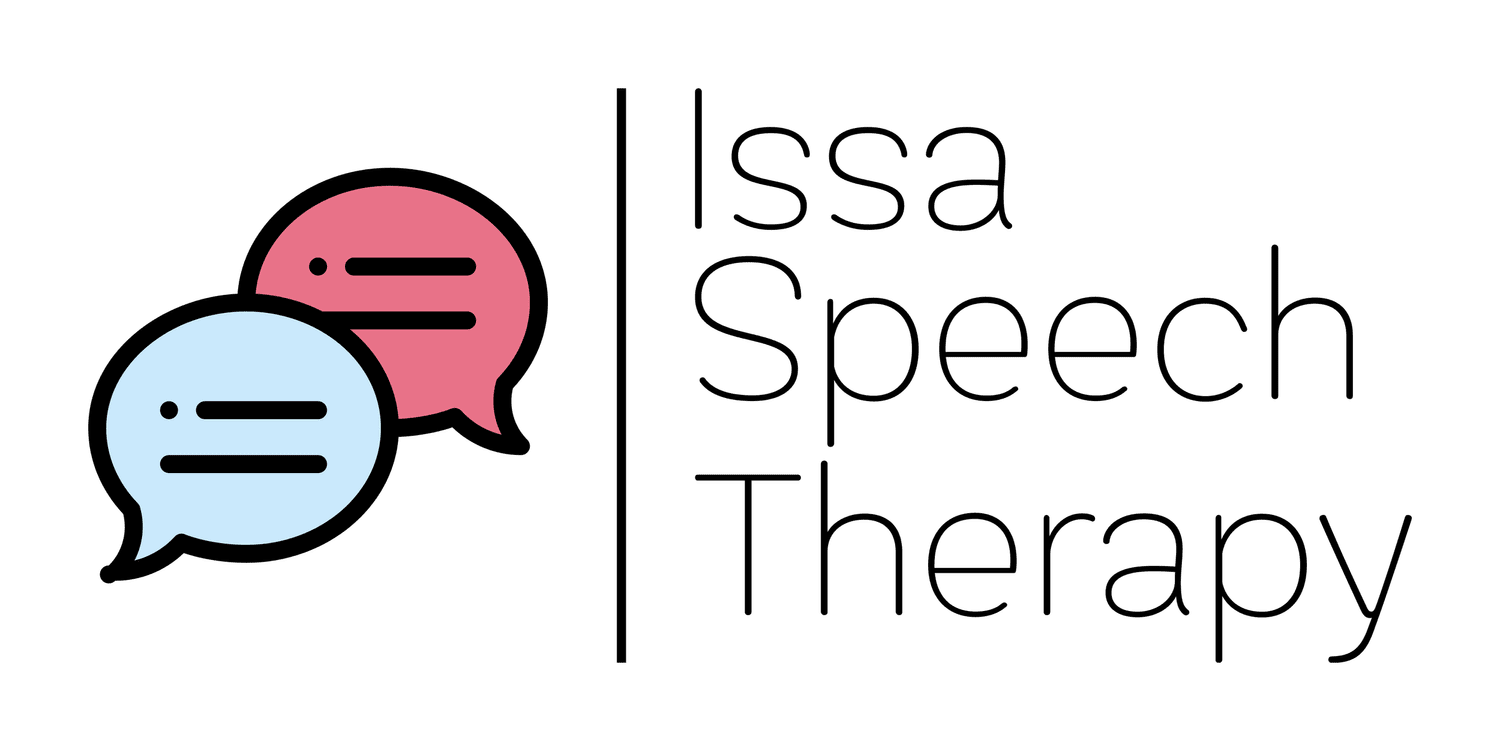
Therapy

What Is SpeechTherapy?
Our speech therapy services are tailored to meet the unique needs of each client, providing a supportive and enriching environment for growth and progress.
During our sessions, which typically run for 30 minutes, we focus on a hands-on, client-led approach. We believe in empowering our clients to actively participate in their therapy journey, encouraging them to take ownership of their progress. By incorporating their interests and preferences into our sessions, we create a comfortable and engaging experience.
At Issa Speech Therapy, we understand that everyone learns differently. That's why we employ a multi-sensory approach to therapy, utilizing various techniques and materials to stimulate learning and maximize outcomes. By appealing to different senses, we enhance engagement and improve retention, facilitating effective communication skills.
We also emphasize regular progress monitoring to ensure that our clients are consistently advancing toward their goals. Our experienced therapists closely track each individual's progress, adjusting strategies and interventions accordingly. This personalized approach guarantees that therapy remains targeted, relevant, and impactful.
We strongly believe in the importance of collaboration with parents and caregivers. At the end of each session, our therapists take the time to communicate with parents, providing updates on the session's activities and progress made. We value the input and involvement of parents in their child's therapy, as their support and understanding greatly contribute to success outside the therapy room.
At Issa Speech Therapy, our dedicated team is committed to creating a nurturing environment where clients can develop effective communication skills and build confidence. We are passionate about helping individuals reach their full potential, and we look forward to being a part of your journey toward improved communication and enhanced quality of life.
What’s Included
Therapy at Issa Speech Therapy is a comprehensive process that includes a variety of techniques and approaches to help individuals with communication disorders improve their skills and abilities. Here is what may be included in therapy at Issa Speech Therapy:
Assessment: Before therapy can begin, the SLP will conduct an initial assessment to determine the individual's communication abilities and identify areas of strength and weakness. This may involve standardized tests, non-standardized assessments, language samples, and other evaluation methods.
Goal setting: Once the assessment is complete, the SLP will work with the individual and/or their family to set specific therapy goals. These goals may include improving speech sounds, expanding vocabulary, increasing fluency, improving voice quality, or enhancing cognitive skills.
Treatment planning: Based on the assessment and therapy goals, the SLP will develop a personalized treatment plan that outlines the specific techniques and approaches that will be used in therapy. The treatment plan may also include a schedule for therapy sessions and recommendations for practice activities to be completed outside of therapy.
Therapy sessions: Therapy sessions may take place in a variety of settings, including in-person, the individual's home, or a school or a preschool. During therapy sessions, the SLP will work one-on-one with the individual to practice specific communication skills. Therapy sessions may involve a variety of techniques and approaches, such as play-based activities, drills and exercises, role-playing, and communication games.
Practice activities: In addition to therapy sessions, the SLP may provide the individual with practice activities to complete outside of therapy. These activities may include homework assignments, practice exercises, and daily routines that incorporate communication goals.
Progress monitoring: Throughout the therapy process, the SLP will regularly monitor the individual's progress toward their therapy goals. This may involve re-administering assessments, tracking therapy session data, or conducting informal observations.
Discharge planning: Once the individual has achieved their therapy goals or has made sufficient progress, the SLP will develop a discharge plan that outlines recommendations for ongoing maintenance and support. This may include follow-up therapy sessions, additional practice activities, or referrals to other healthcare professionals.
Therapy at Issa Speech Therapy is a collaborative process that involves ongoing communication and feedback between the SLP, the individual, and their family. With consistent effort and support, therapy can help individuals with communication disorders improve their abilities and enhance their quality of life.


